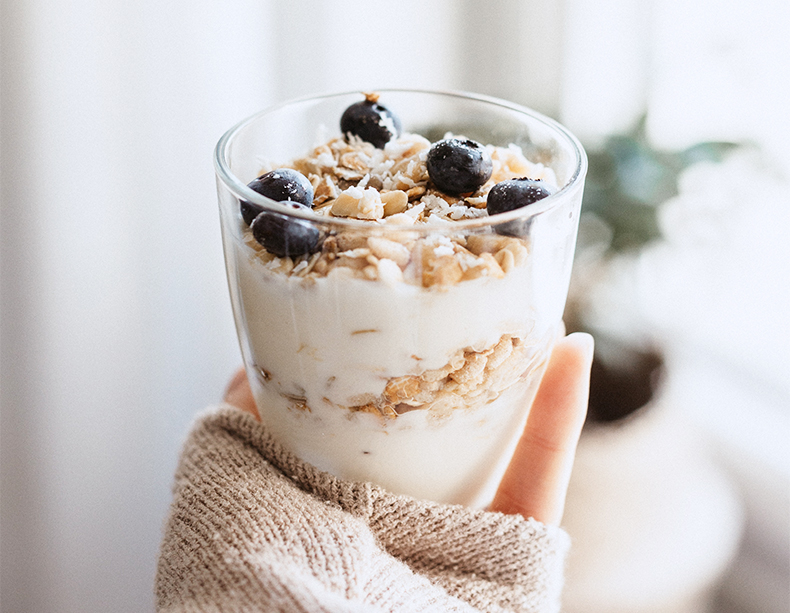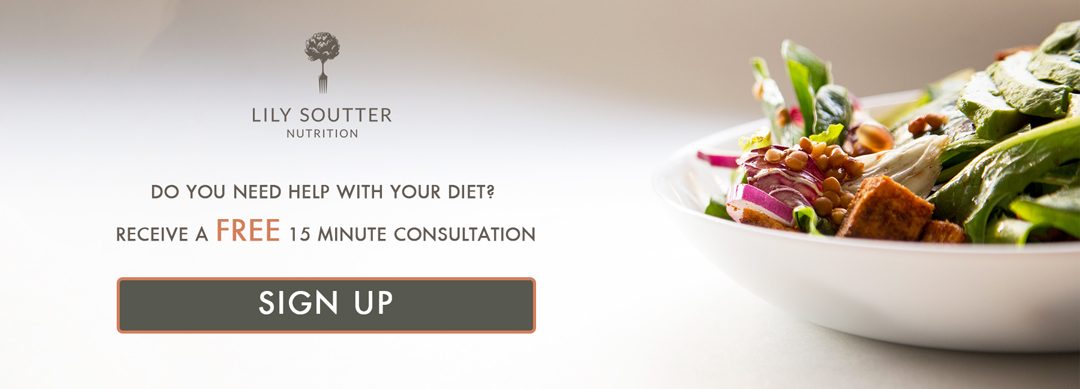|
0% Greek Yoghurt |
0% Natural Live Yoghurt |
|
Per 100g serving |
Per 100g serving |
|
54kcal |
56kcal |
|
0g fat |
0g |
|
0g saturates |
0g saturates |
|
3g carbs |
7.5g carbs |
|
3g sugars |
7.5g sugar |
|
10.3g protein |
6.6g protein |
|
0.1g salt |
0.21g salt |
|
120mg calcium |
172mg calcium |
Greek Yoghurt
Greek yoghurt is made by straining out the whey found in regular yoghurt, which results in a thicker and creamier yoghurt. This yoghurt sets in a pot so it is much firmer and is also higher in protein but lower in sugar per 100g.
Protein is essential for maintaining lean muscle and for keeping hunger at bay, which makes it an attractive choice. On the other hand, it provides slightly less calcium, which is a vital nutrient, required for healthy bones and teeth.
Greek yoghurt is certainly creamier and higher in fat in comparison to natural live yoghurt, so if watching your heart health, then opting for a 0% fat version would be best.
It’s also important to look out for brands producing authentic and traditional Greek yoghurt. ‘Greek-style’ yoghurts differ in that they come with added starch, cream and thickeners, which change the consistency of the yoghurt, and provides a lower protein yet higher fat alternative.
The thick nature of Greek yoghurt makes it a perfect alternative to sour cream and can be added to dips. Overnight oats made with Greek yoghurt and fresh fruit is a protein-rich and super tasty breakfast, you can also try blending yoghurt with frozen fruit to make a yummy frozen ice cream.

Live Yoghurt
Live yoghurt is produced by adding healthy bacteria to milk and allowing it to ferment, it’s this fermentation process, which provides its tasty tangy flavour.
The majority of yoghurt sold in the UK is ‘live’ which means it provides healthy bacteria, which are thought to have positive effects on our gut. Regular consumption of yoghurt may inhibit the growth of harmful bacteria, whilst helping to maintain a healthy microbiome and regulate transit time. ‘Bio yoghurts’ differ in that they have had additional bacteria added post-fermentation, resulting in yoghurt with a higher amount of beneficial bacteria.
However not all yoghurt provides live cultures as some are heat-treated post-fermentation which kills off healthy bacteria. To ensure your yoghurt comes with friendly bacteria, always check the label for ‘live cultures’.
Natural yoghurt has a thinner consistency and a lower fat content in comparison to regular Greek yoghurt, therefore works well when combined with dressings and cold sauces. It can also be added to smoothies or soups after cooking.
The Winner
Whilst all-natural yoghurt is healthy, low-fat authentic Greek yoghurt may have the edge! Traditional Greek yoghurt such as FAGE Total not only tastes amazing but also provides a big protein hit and comes with live cultures to support digestive health.
Lily is a London Nutritionist who graduated from Newcastle University with a BSc (Hons) degree in Food and Human Nutrition (AfN accredited) where she was awarded the Sage Faculty for Excellence Scholarship on an annual basis. She then went on to complete a 2-year post-graduate Diploma in Nutritional Therapy and is currently working towards her MSc in Nutritional Medicine (AfN accredited) at the University of Surrey. Lily’s extensive knowledge of the science of food and health, enables her to regularly write for The Times, The Telegraph, The Daily Mail, The Independent, Women’s Health and Cosmopolitan.
Her frequent TV appearances include ITV’s This Morning with Holly Willoughby and Phillip Schofield, and ITV’s primetime series Save Money: Lose Weight with Dr Ranj Singh. Lily’s passion is to simplify the science around nutrition, to provide health hacks and smarter eating strategies to empower people to enjoy a healthy and successful lifestyle. Her specialities lie in workplace wellness, implementing nutrition-focused wellbeing programmes within corporate organisations across the UK.
Lily also sees individual clients from her clinic in Chelsea and a private medical practice based in Notting Hill.




